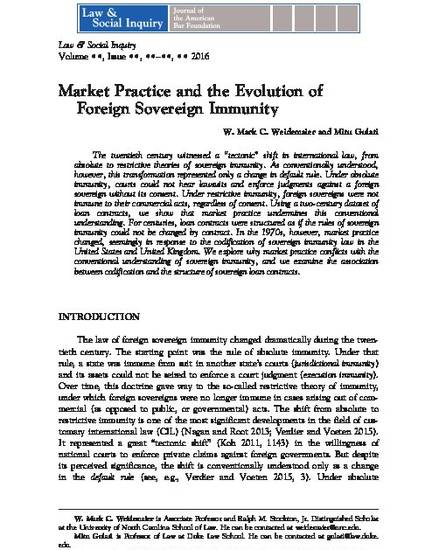
Article
Market Practice and the Evolution of Foreign Sovereign Immunity
Law and Social Inquiry
(2017)
Abstract
The twentieth century witnessed a “tectonic” shift in international law, from absolute to restrictive theories of sovereign immunity. As conventionally understood, however, this transformation represented only a change in default rule. Under absolute immunity, courts could not hear lawsuits and enforce judgments against a foreign sovereign without its consent. Under restrictive immunity, foreign sovereigns were not immune to their commercial acts, regardless of consent. Using a two-century dataset of loan contracts, we show that market practice undermines this conventional understanding. For centuries, loan contracts were structured as if the rules of sovereign immunity could not be changed by contract. In the 1970s, however, market practice changed, seemingly in response to the codification of sovereign immunity law in the United States and United Kingdom. We explore why market practice conflicts with the conventional understanding of sovereign immunity, and we examine the association between codification and the structure of sovereign loan contracts.
Keywords
- sovereign debt,
- sovereign immunity,
- contracts
Disciplines
Publication Date
2017
Citation Information
W. Mark C. Weidemaier and Mitu Gulati. "Market Practice and the Evolution of Foreign Sovereign Immunity" Law and Social Inquiry (2017) Available at: http://works.bepress.com/mark_weidemaier/17/
